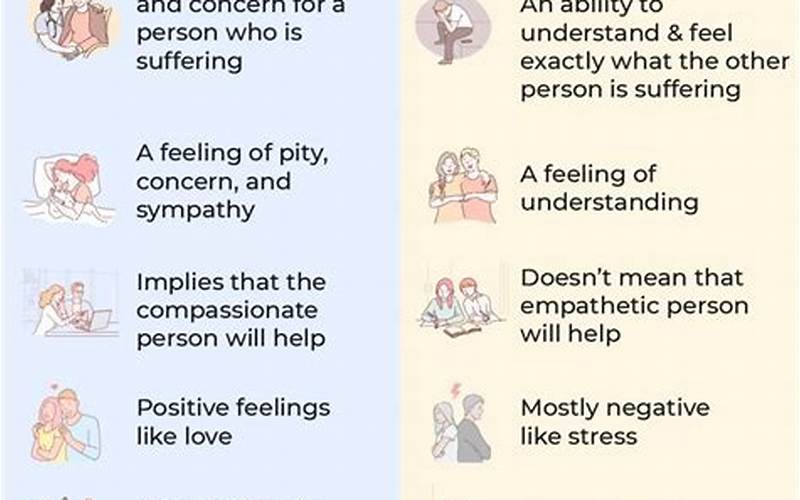 Source: tse1.mm.bing.net
Source: tse1.mm.bing.netThe medical profession is a noble and highly respected field that plays a crucial role in society. Practicing medicine requires a diverse set of skills, extensive knowledge, and a genuine passion for helping others. In this article, we will explore what it means to practice medicine, the various specialties within the field, the educational requirements, and the essential qualities needed to succeed in this rewarding career. Whether you are considering a career in medicine or simply want to learn more about the profession, this informative guide will provide you with valuable insights.
Understanding the Medical Profession
 Source: tse1.mm.bing.net
Source: tse1.mm.bing.netThe medical profession encompasses a wide range of healthcare practices aimed at diagnosing, treating, and preventing illnesses and injuries. Medical professionals, such as doctors and nurses, work diligently to improve the health and well-being of individuals and communities. They employ their expertise and skills to provide medical care, offer advice, and support patients throughout their healthcare journeys. The medical profession is not only limited to primary care but also includes various specialized fields and sub-specialties that cater to specific medical needs.
Specialties within the Medical Profession
 Source: tse1.mm.bing.net
Source: tse1.mm.bing.netWithin the medical profession, there are numerous specialties that healthcare professionals can choose to pursue. These specialties allow doctors and other medical practitioners to focus on specific areas of medicine, enabling them to develop a deep understanding and expertise in those fields. Some common medical specialties include:
1. Internal Medicine
 Source: tse1.mm.bing.net
Source: tse1.mm.bing.netInternal medicine practitioners, also known as internists, specialize in the prevention, diagnosis, and treatment of adult diseases. They provide comprehensive medical care and often serve as primary care physicians for adults. Internal medicine encompasses various sub-specialties, including cardiology, gastroenterology, and endocrinology, among others.
2. Pediatrics
 Source: tse1.mm.bing.net
Source: tse1.mm.bing.netPediatrics focuses on the healthcare of infants, children, and adolescents. Pediatricians are responsible for monitoring growth and development, diagnosing and treating childhood illnesses, and providing preventive care. They play a vital role in ensuring the well-being of the youngest members of society.
3. Surgery
 Source: tse1.mm.bing.net
Source: tse1.mm.bing.netSurgery is a specialized field within medicine that involves using invasive techniques to treat diseases, injuries, and deformities. Surgeons are highly skilled professionals who perform surgical procedures, such as appendectomies, heart bypass surgeries, and organ transplants. Surgical specialties include orthopedic surgery, neurosurgery, and cardiovascular surgery, among others.
4. Obstetrics and Gynecology
 Source: tse1.mm.bing.net
Source: tse1.mm.bing.netObstetrics and gynecology (OB/GYN) focuses on women's reproductive health, pregnancy, and childbirth. OB/GYN specialists provide prenatal care, deliver babies, diagnose and treat gynecological conditions, and perform surgeries, such as hysterectomies and cesarean sections.
5. Psychiatry
 Source: tse1.mm.bing.net
Source: tse1.mm.bing.netPsychiatry is a medical specialty that deals with the diagnosis, treatment, and prevention of mental illnesses. Psychiatrists are trained to assess and manage various psychiatric disorders, such as depression, anxiety, schizophrenia, and bipolar disorder. They employ a combination of therapy, medication, and other interventions to support patients' mental well-being.
6. Anesthesiology
 Source: tse1.mm.bing.net
Source: tse1.mm.bing.netAnesthesiology focuses on providing anesthesia and pain management during surgical procedures. Anesthesiologists are responsible for administering anesthesia, monitoring patients' vital signs during surgery, and ensuring their comfort and safety throughout the procedure. They play a critical role in ensuring successful and pain-free surgeries.
Educational Requirements
 Source: tse1.mm.bing.net
Source: tse1.mm.bing.netBecoming a medical professional requires a significant investment of time and effort. The educational path to practice medicine typically involves the following steps:
1. Undergraduate Education
 Source: tse1.mm.bing.net
Source: tse1.mm.bing.netBefore pursuing a medical degree, aspiring healthcare professionals must complete a bachelor's degree. Although there is no specific major requirement, most students choose to major in a science-related field, such as biology or chemistry. During their undergraduate studies, they are expected to complete prerequisite courses, including biology, chemistry, physics, and mathematics, to build a solid foundation for medical school.
2. Medical School
 Source: tse1.mm.bing.net
Source: tse1.mm.bing.netAfter completing their undergraduate degree, aspiring doctors must attend medical school, which typically lasts four years. Medical school curriculum includes both classroom-based learning and clinical rotations, allowing students to gain theoretical knowledge and hands-on experience. During medical school, students cover a broad range of medical topics and start to explore different specialties.
3. Residency Training
 Source: tse1.mm.bing.net
Source: tse1.mm.bing.netFollowing medical school, graduates enter residency training, which provides them with the opportunity to specialize in a specific field of medicine. Residency programs typically last three to seven years, depending on the chosen specialty. During this period, residents work under the supervision of experienced physicians, gaining practical skills and further refining their knowledge in their chosen field.
4. Board Certification
 Source: tse1.mm.bing.net
Source: tse1.mm.bing.netAfter completing residency training, medical professionals have the option to become board-certified in their chosen specialty. Board certification requires passing a rigorous examination administered by the relevant medical board. This certification demonstrates a doctor's expertise and competence in their chosen specialty and is often a requirement for practicing medicine or securing employment in certain healthcare settings.
Essential Qualities for Success in Medicine
 Source: tse1.mm.bing.net
Source: tse1.mm.bing.netTo thrive in the medical profession, individuals must possess certain qualities and attributes. These qualities contribute to their effectiveness as healthcare providers and their ability to deliver high-quality care to patients. Some essential qualities for success in medicine include:
1. Empathy and Compassion
 Source: tse1.mm.bing.net
Source: tse1.mm.bing.netMedical professionals must genuinely care about their patients' well-being and demonstrate empathy and compassion. Patients often find solace in healthcare providers who show understanding, kindness, and support, especially during challenging times. Empathy allows doctors to connect with their patients on a deeper level and provide personalized care tailored to their unique needs.
2. Strong Communication Skills
 Source: tse1.mm.bing.net
Source: tse1.mm.bing.netEffective communication is vital in the medical profession. Doctors must be able to explain complex medical concepts in a clear and understandable manner to patients and their families. They should also be skilled listeners, allowing patients to express their concerns and actively involving them in their healthcare decisions. Clear and concise communication among healthcare professionals is also crucial for collaborative patient care.
3. Problem-Solving Abilities
 Source: tse1.mm.bing.net
Source: tse1.mm.bing.netMedical professionals encounter a wide range of medical conditions and challenges, requiring strong problem-solving abilities. They must be able to analyze symptoms, interpret test results, and develop effective treatment plans. The ability to think critically and make quick and accurate decisions is essential in providing timely and appropriate medical care.
4. Attention to Detail
 Source: tse1.mm.bing.net
Source: tse1.mm.bing.netIn the medical profession, attention to detail is paramount. Healthcare providers must carefully review medical records, interpret diagnostic tests, and administer medications accurately. Even the smallest oversight can have significant consequences for patient outcomes. By paying meticulous attention to details, medical professionals ensure the safety and well-being of their patients.
5. Continuous Learning and Adaptability
 Source: tse1.mm.bing.net
Source: tse1.mm.bing.netMedicine is a constantly evolving field, with new research, technologies, and treatment approaches emerging regularly. Successful medical professionals embrace lifelong learning and stay abreast of the latest advancements in their specialty. They adapt their practices based on new evidence and are open to incorporating innovative techniques to improve patient care.
Conclusion
The medical profession is a challenging yet incredibly fulfilling field. Practicing medicine requires a significant commitment to education, ongoing learning, and personal growth. Whether you aspire to become a primary care physician, surgeon, psychiatrist, or any other medical professional, the journey is both intellectually stimulating and emotionally rewarding. By combining your passion for helping others with the essential qualities discussed in this article, you can embark on a successful and impactful career in medicine.
Post a Comment for "Practice Medicine: A Comprehensive Guide to the Medical Profession"